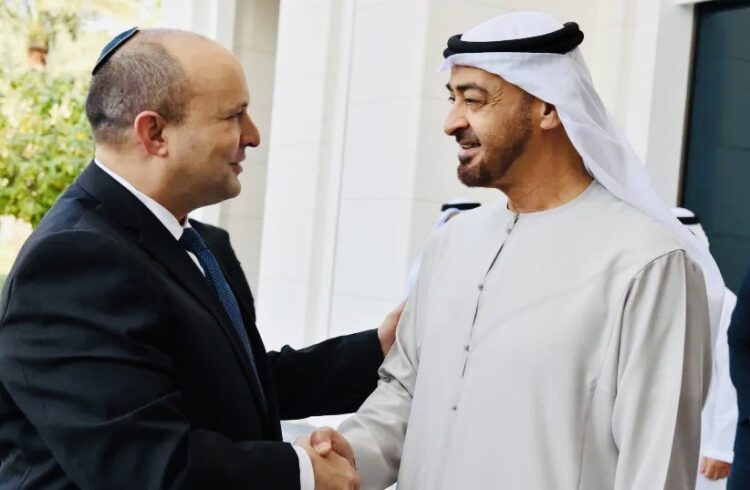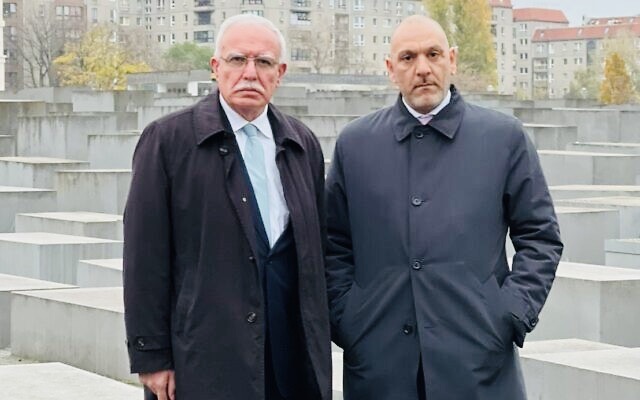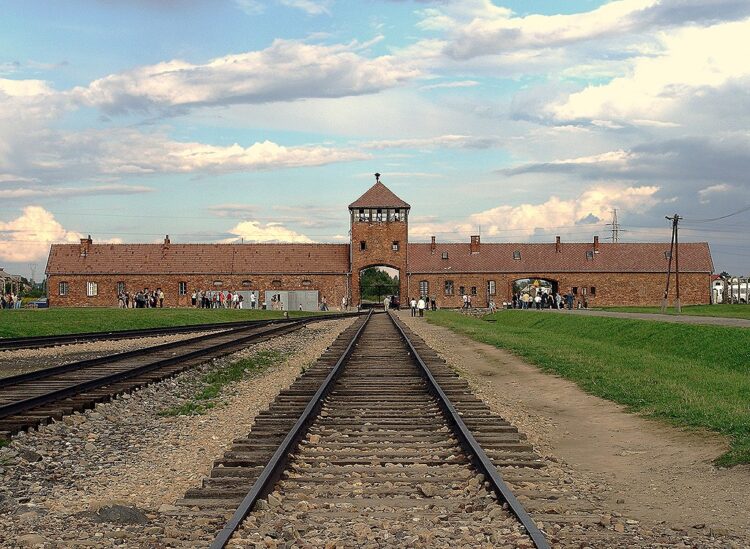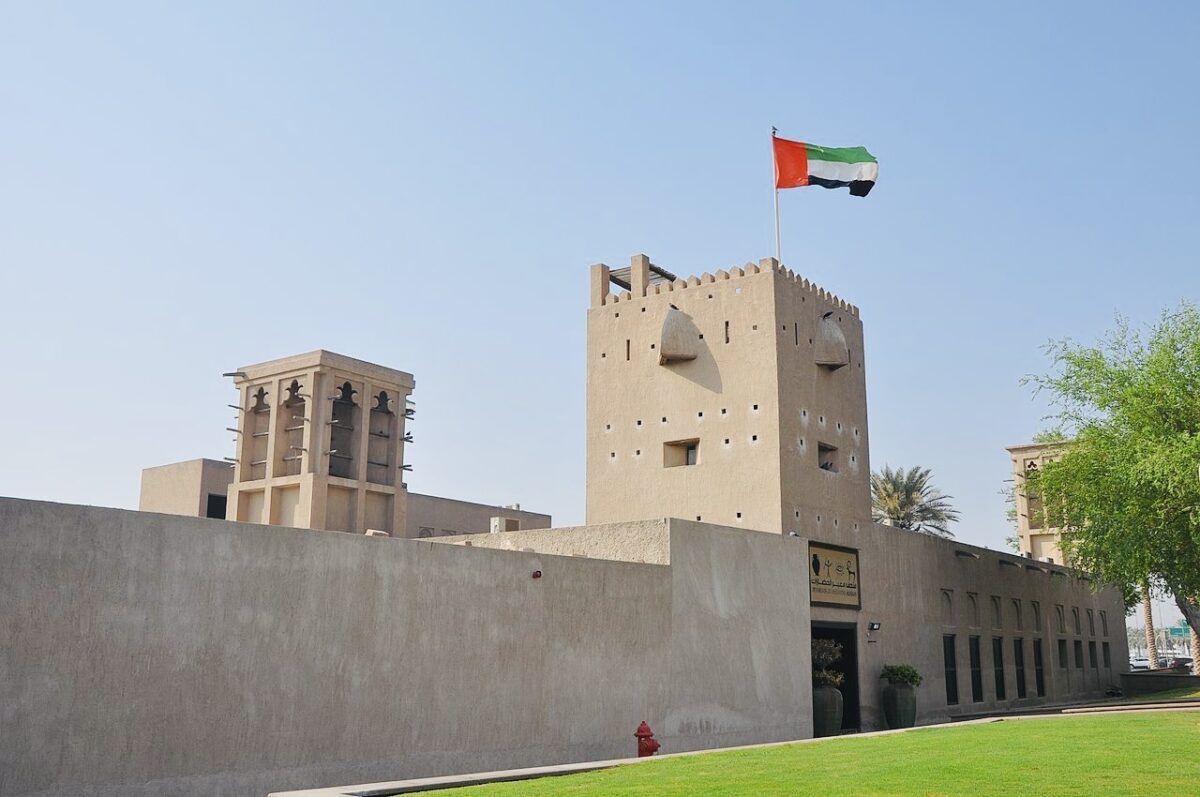Until quite recently, Holocaust denial was a depressing and unchanging staple of Arab and Muslim political culture, with some public figures hewing to the mantra that recognition of the Shoah bolstered Israel’s claim to sovereignty and statehood.
This attitude trickled down to the grassroots level in countries ranging from Syria and Jordan to Iran and Egypt, reinforcing antisemitic tropes and stereotypes among ordinary citizens.
Iran’s supreme leader, Ayatollah Ali Khamenei, once asked, “Why is it a crime to raise doubts about the Holocaust?”
Mahmoud Ahmadinejad, the former president of Iran, was an avid Holocaust denier, calling the deaths of six million Jews during World War II a “lie and a mythical claim.” On another occasion, he reduced the Holocaust to a mere “historic event.” As he said, “Why should everyone be forced to accept the opinion of just a few on a historic event?”
Mahmoud Abbas, the president of the Palestinian Authority, accepts the veracity of the Holocaust and has condemned it. But in his PhD thesis, he falsely claimed that Zionist leaders had actively collaborated with Nazi Germany.
Hamas, the governing body in the Gaza Strip since 2006, has dabbled in Holocaust denial over the years.
This phenomenon is still distressingly common among Arabs and Muslims. But since the 2020 Abraham accords — which enabled Israel to normalize relations with the United Arab Emirates, Bahrain, Morocco and Sudan — Holocaust denial as a monolithic structure in the Middle East has begun to crumble.

The United Arab Emirates, which is developing increasingly close ties with Israel, has taken remarkable steps to embed the Holocaust in the public’s perception.
In the summer of 2021, the first Holocaust exhibition in the Arab world opened in Dubai at the Crossroads of Civilizations Museum. Showcasing the testimonies of several Holocaust survivors, it informs visitors that Tunisia was briefly occupied by the German army and that Tunisian Jews were subjected to antisemitic restrictions and deportations.
Rabbi Elie Abadie, a rabbi at the Jewish Council of the Emirates, told CNN recently that the permanent exhibition in Dubai is hugely significant. “Although most people in the Middle East know the Holocaust took place, they do not speak or learn about it as much. Now, the region is opening up, and this exhibition tells what happened and demonstrates public recognition of history.”
The United Arab Emirates is also developing a new curricula for primary and secondary school grades that touches on the Holocaust.
Yad Vashem, the Holocaust museum and research center in Jerusalem, and the London-based Institute for Monitoring Peace and Cultural Tolerance in School Education, have been assisting the United Arab Emirates’ Ministry of Culture and Youth with curriculum development.
Morocco, once home to the largest Jewish community in the Arab world, is working on curricula that includes Jewish history and culture, plus the Holocaust.

Last week, the foreign minister of the Palestinian Authority, Riad al-Maliki, paused at the Holocaust memorial in central Berlin. He was accompanied by the Palestinian ambassador to Germany, Laith Arafeh, who tweeted, “We remembered the victims of the most heinous crime in human history.”
Their visit took place three months after Abbas shocked German Chancellor Olaf Scholz at a news conference in Berlin by claiming that Israel had committed “50 Holocausts” against the Palestinians.
The German government was displeased and embarrassed by Abbas’ incendiary remark, which may partially explain why Maliki and Arafeh turned up at the Memorial to the Murdered Jews of Europe, which was inaugurated in 2005.
Robert Satloff, an American historian who has lived in Morocco, cites four reasons why Holocaust awareness is gaining ground in the Arab world. In a paper published last year, he wrote:
“First, Arabs have seen mass atrocities up close and, in many quarters, they triggered revulsion. Whether it was Saddam Hussein’s gassing of the Kurds and devouring of Kuwait, the killing and burning of Darfur, or the barbarities of Assad’s Syria, the cumulative impact of serial inhumanity opened many Arab minds to engage in the global discussion of genocide awareness and prevention.
“Second, historians finally began to tell the Arab story of the Holocaust, that is, the persecution of the hundreds of thousands of Jews who lived in those Arab lands that fell under the domination of Nazi Germany, Vichy France, or Fascist Italy –principally Morocco, Algeria, Tunisia and Libya — and the role Arabs played as perpetrators, bystanders and even rescuers. While my own small contribution was to research, write, speak and make a film on this story, what has been especially gratifying is seeing an explosion of rigorous academic scholarship over the past decade on the Holocaust experience in the Arab world.

“Third, shifting strategic dynamics in the Middle East — especially a common fear of a rapacious Iran, the shrinking resonance of the Palestinian issue, and the efforts by Democratic and Republican presidents alike to diminish America’s regional footprint and escape from the region’s conflicts — drove Arab states and Israel together. The result is that Israel now has full diplomatic relations with six Arab countries, whose collective population constitutes a majority of the Arab world, and working relationships with several others, making possible unprecedented human interaction between Arab and Israeli societies. One byproduct is that with contact comes understanding, and even empathy, for the Holocaust and the role it plays in Israel’s national narrative.
“Fourth, key Arab states have stopped trying to protect themselves against the spread of Islamist extremism by accommodating the radicals and have shifted gears to confronting radicalism and embracing a strategy of religious tolerance and outreach to minorities. The time when Egyptian leaders did their best to coopt the Muslim Brotherhood and Saudi Arabia exported its own made-in-Riyadh extremism just to keep a step ahead of the real extremists has given way to the current Egyptian president attending Christmas mass and the Saudis quieting their arch-conservative imams and even hosting American evangelical leaders.”
To be sure, Holocaust denial still remains a blight on Arab societies, but thanks to countries like the United Arab Emirates and Morocco it is gradually being supplanted by an openness to learning about the worst single atrocity of the twentieth century.
